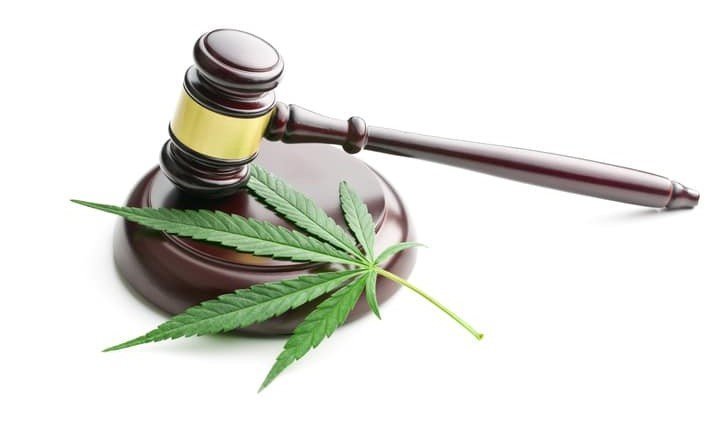7 Key Facts About Medical Cannabis Laws You Should Know
Legalization Varies: Medical cannabis laws vary widely between countries and even within states or provinces of the same country. Some places have legalized medical cannabis fully, while others have strict regulations or only allow limited use.
Doctor’s Recommendation: Typically, medical cannabis requires a doctor’s recommendation or prescription for legal use. This recommendation is based on the patient’s medical condition and symptoms that could potentially benefit from cannabis treatment.
Qualifying Conditions: Each jurisdiction has its list of qualifying medical conditions that warrant medical cannabis use. These conditions often include chronic pain, epilepsy, cancer-related symptoms, and more recently, conditions like PTSD and anxiety.
Regulated Distribution: Medical cannabis is usually distributed through licensed dispensaries or pharmacies. These establishments must adhere to strict regulations regarding product quality, labeling, and patient information.
Patient Registration: Patients seeking medical cannabis often need to register with a state or national program. This registration process helps ensure legal compliance and may provide access to specific strains or products recommended for their condition.
Limitations on THC Content: Many medical cannabis laws impose limits on the concentration of THC (tetrahydrocannabinol), the psychoactive compound in cannabis. This is to minimize intoxicating effects and focus on therapeutic benefits.
Federal vs. State Laws: In countries like the United States, medical cannabis laws can conflict with federal laws, which still classify cannabis as a Schedule I drug. States have the authority to legalize medical cannabis, leading to a complex legal landscape where state and federal laws may differ.
Understanding these key facts can help individuals navigate the legal and medical complexities surrounding medical cannabis use.
Medical Cannabis Laws: A Complete Guide You Need to Know
As the medicinal power of cannabis continues to gain global recognition, countries worldwide are reassessing their regulations surrounding its medical use. In this comprehensive guide, we explore the rapidly evolving legal landscape of medical cannabis, focusing on the laws governing its use in different countries, with a special emphasis on the United Kingdom.
What Are Medical Cannabis Laws?
Medical cannabis laws are legal regulations that govern the use of cannabis for medicinal purposes. These laws vary dramatically from country to country, with each jurisdiction creating unique rules regarding the cultivation, distribution, and patient access to cannabis. The laws dictate who can access cannabis-based treatments, how these products can be obtained, and under what medical conditions they can be prescribed.
The global approach to medical cannabis legislation has evolved over time, with many countries acknowledging its therapeutic potential in managing a variety of conditions, from chronic pain to epilepsy and anxiety. Understanding these regulations is crucial for patients, healthcare providers, and policymakers alike. With more countries considering legalization and regulation, it’s important to examine the diverse landscape of medical cannabis laws, which differ depending on factors such as political climate, medical infrastructure, and cultural perceptions of cannabis.
Some of the key factors that define medical cannabis laws include:
Regulation of Cannabis Products: Determining which cannabis-based products are allowed for medicinal use, including oils, tinctures, edibles, and smokable forms of cannabis.
Eligibility Criteria: The list of qualifying medical conditions for which patients can be prescribed cannabis.
Prescribing and Access Rules: Whether cannabis can be prescribed by general practitioners or only by specialists in certain fields.
Cultivation and Distribution: Who is allowed to cultivate cannabis for medicinal use, and the regulations surrounding its distribution to patients.
Countries have taken different approaches based on their healthcare needs, legal frameworks, and political considerations, making the global landscape of medical cannabis highly varied and continuously evolving.
Medical Cannabis Laws in the United Kingdom
In the United Kingdom, cannabis was long classified as a Schedule 1 drug, meaning it was considered to have no recognized medicinal value and was subject to the most stringent controls. This classification made it impossible for patients to legally access cannabis for medical purposes. However, significant changes took place in November 2018, when the UK government made pivotal reforms, allowing specialist doctors to prescribe cannabis-based products for medicinal use in certain circumstances.
The change in the law came after increasing evidence emerged supporting the medicinal benefits of cannabis, particularly for conditions like severe epilepsy and multiple sclerosis. The law now permits the prescription of cannabis-based medicines such as Epidiolex, a cannabidiol (CBD) oil approved for treating severe forms of epilepsy, and Sativex, a mouth spray containing both THC and CBD used to alleviate symptoms of multiple sclerosis.
Who Can Prescribe Medical Cannabis in the UK?
Under current UK law, medical cannabis can only be prescribed by specialist doctors. These doctors are typically neurologists, pain management specialists, or oncologists, and they must have a detailed understanding of the patient’s condition and the potential benefits of medical cannabis. General practitioners (GPs) cannot prescribe medical cannabis unless they have specialized knowledge and training.
This means that access to medical cannabis in the UK is limited to those who meet certain medical criteria and who are under the care of a qualified specialist. The law was designed to ensure that medical cannabis is only prescribed to those who truly need it and are likely to benefit from its use.
Qualifying Conditions for Medical Cannabis in the UK
To be eligible for a medical cannabis prescription in the UK, patients must suffer from specific, serious medical conditions. Some of the qualifying conditions include:
Severe epilepsy that has not responded to other treatments, especially in children.
Spasticity caused by multiple sclerosis (MS), which is a condition that affects the nervous system and leads to muscle weakness and control issues.
Nausea and vomiting associated with chemotherapy, which are often severe side effects of cancer treatments.
Although these are the primary conditions for which cannabis-based treatments can be prescribed, there are ongoing discussions about expanding the list of qualifying conditions. Advocates argue that chronic pain, anxiety disorders, and post-traumatic stress disorder (PTSD) should also be considered for inclusion, as cannabis has shown promise in alleviating symptoms associated with these conditions.
Challenges and Limitations of Medical Cannabis Access in the UK
Despite the advancements in medical cannabis legislation, access to cannabis-based treatments remains challenging for many patients in the UK. A few key limitations include:
Limited Availability
Although medical cannabis products are legally available in the UK, the range of products that can be prescribed is still limited. Many patients are unable to access the specific cannabis-based products they need due to the limited number of approved treatments available through the National Health Service (NHS).
High Costs
Medical cannabis treatments can be expensive, especially since many insurance providers do not cover the cost of cannabis-based medications. For patients without private insurance, the cost of treatment can become a major barrier to access, as many cannabis-based products are priced out of reach for the average person.
Strict Eligibility Criteria
The strict eligibility criteria for medical cannabis prescriptions mean that not all patients who could benefit from treatment are able to access it. As mentioned earlier, only patients suffering from certain conditions, such as severe epilepsy or MS, are eligible for a prescription. This leaves many patients with chronic pain or other debilitating conditions without options for treatment.
Regulatory Oversight
Medical cannabis products in the UK must meet stringent quality control standards and be approved by the Medicines and Healthcare products Regulatory Agency (MHRA). While this ensures the safety and efficacy of products, it also means that not all cannabis-based treatments are available for patient use. This regulatory framework limits patient choice and access to potentially helpful treatments.
The Future of Medical Cannabis Laws: A Transformative Shift
The future of medical cannabis laws in the UK and globally is a subject of ongoing debate. While some countries have already embraced broader access to medical cannabis, others are still in the early stages of reform.
In the UK, there is significant momentum for further reform of cannabis laws, with many healthcare professionals, patients, and advocates pushing for broader access. Key discussions include:
Expanding the list of qualifying conditions: Advocates argue that chronic pain, anxiety, and PTSD should be added to the list of conditions that qualify for medical cannabis prescriptions. Cannabis has shown potential in treating these conditions, and expanding eligibility would allow more patients to benefit from the treatment.
Simplifying the prescribing process: Current procedures for obtaining a prescription for medical cannabis are complex and involve multiple steps. A streamlined process would make it easier for patients to access treatment in a timely manner.
Reducing the cost of treatment: By increasing the number of approved cannabis-based products and allowing insurance providers to cover the cost of medical cannabis, the UK could improve access for more patients.
Globally, many countries are exploring or implementing medical cannabis reforms, and these changes will likely continue in the coming years as the evidence for cannabis’s medicinal benefits grows.
The Struggles with Medical Cannabis Laws: Legal Hurdles and Uncertainty
“Despite growing interest, the legal landscape surrounding medical cannabis remains confusing and inconsistent across regions. Many states still have strict regulations, leaving patients uncertain about their rights and access to treatment. In some areas, medical cannabis remains illegal, creating a barrier for those seeking alternative therapies. Additionally, there is ongoing debate about its safety, with concerns over long-term effects and misuse. For patients relying on medical cannabis, these legal hurdles can cause unnecessary stress, complicating access to potentially life-changing treatments.”
The Evolving Medical Cannabis Legal Landscape
The landscape of medical cannabis laws is evolving rapidly, reflecting changing public attitudes and increasing evidence of cannabis’s medicinal value. While countries like the UK have made significant progress in terms of legalization, barriers to access remain, particularly regarding availability, cost, and strict eligibility criteria.
As the legal landscape continues to evolve, it’s essential to stay informed about the latest developments in medical cannabis legislation. Advocating for policies that prioritize patient access and well-being is crucial in ensuring that those who could benefit from this treatment are not left behind.
At Elios Clinics, we are committed to providing comprehensive healthcare services and supporting our patients through alternative treatments like medical cannabis when appropriate.

